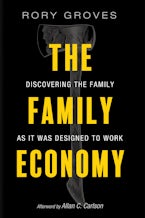Experiences with training and articulating the value to community?
Training
Hi Matt,
I served to develop projects, as a Catholic Charities agency-based Community- and "Parish-Social-Ministry-" organizer.
EXAMPLE: In this "ABCD case" I met a volunteer parishioner, enrolled in Cincinnati's Lay Pastoral Ministry Program, of which I'm a graduate (MA in Religion). This includes a required, cap-stone Ministry Project (part of her curriculum). In conversation she clarified her ABCD "motivation to act." She wanted to organize "Mentor Moms," from parishes.
The result was a Team of Mentor Mom parish volunteers (middle-income, suburban mothers) who combined their gifts in the course of trainings, starting with an ABCD weekend at Xavier for Teams. They were attracted to worked in concert with a maternity-clinic-nurse and inner-city parish staff minister doing "Emergency Assistance (EA)" work (food pantry, etc.). The result was a project build "from the inside out," from and between, two twinning Catholic communities.
Connected by the clinician, Mentor Moms worked, in Northern Kentucky, with the neighborhood parish EA staff and expecting often-single low-income mothers. ABCD-trained Mentors also were oriented as a Team, for their well-defined Mentor-Mom volunteer-role, with Junior League of nearby Cincinnati, in their Mentor Mom orientation-program.
Mentor Mom's structured, collaborative role was to "accompany" low-income mothers during pregnancy and afterwards. These low-income mothers and their children, in poor neighborhoods, were isolated and vulnerable. For example, public financial-assistance was low, housing relatively expensive and the nearby women & children's homeless-shelter (part of Catholic Charities) was perpetually full.
The Clinic nurse inquired of her clients, and low-income women responded positively. These women often lived near the family- health clinic and inner-city Catholic parish. Mentor Moms visited, kept in touch by phone, celebrated family events (e.g., Baby showers, birthday parties of older siblings at the parish; Parish-supplied ice cream was a crucial asset!). Reflection together led to problem solving (e.g., Mentors' good networks connecting a quality job with a mom transitioning from public assistance).
ABCD-trained Mentor Moms leveraged their parish communities for solidarity -- very effectively -- to support specific needs, in a "twinning relationship" with the inner-city emergency-assistance parish-ministry. This is internally-focused "Targeted Asset Mapping" (see attached 2p ABCD Summary description). Mentor Moms leveraged their social capital for (suburban) parish solidarity actions.
ABCD-trained Mentor Moms also led an "appreciative inquiry" (AI) event -- during regularly-scheduled community free-roller-skating at the inner-city parish. (ABCD Asset mapping and capacity inventories can be grouped under the umbrella of AI.) This ABCD "Visionary asset mapping" experience, facilitated by ABCD-organizing Mentor Moms, connected neighbor's "gifts of individuals" with their interested, gifted and nearby peers (e.g., ABCD connecting to "Teachables:" for a new craft class for young children; and parents a karate class for other parent's older children, in the parish building).

The staffed clinic, inner-city parish, suburban parishes and my Catholic Charities agency served as needed ABCD "vehicles," for the trained volunteers, motivated-to-act. The parish, as ABCD vehicle, engaged its associating neighbors, with one another, first during roller skating. The "assets of an institution" (skating rink, etc.) thus was leveraged with skaters (together, an ABCD "resource of association") to connect individual gifts.
Parish-level pastoral ministry is substantially synonymic with community building (e.g., in "stewardship" gift-mobilizing the "time," "talent" and "treasure" of members). Be that as it may, pastoral-community leaders often labor under the same colonized over-professionalization (McKnight) as social agencies. Theologically described in the book Clericalism: The Death of Priesthood, inherited "scripts" in clerical culture foster underlying attitudes which preserve destructive aspects of social relationships. Alternatively, pastoral workers "thinking like organizers" can prophetically-practice some horizontalism to call forth gifts of all to do the work of God's love in the world.
(In a disaster-relief context, abundant gift mobilizing engaging congregation assets in our era of climate change, is demonstrated the recorded 1-hour video webinar: "Self Organized Leadership in Networks: Lessons from Occupy Sandy and the People’s Climate March." See also: "Occupy Sandy Field Orientation," a 12p PDF for participants, to catalyze mutual aid akin to ABCD-engagement.)
CBI's ABCD-training, at Xavier (Cincinnati's Jesuit University), provided the asset-based paradigm and citizen discussion-process. Mentor Moms were parents: with experience-based gifts, in social-capital-rich parishes, within an adjudicatory network with stated ideals to frame this initiative. With a structured Mentor Mom role, in faith, they served as "people for others" and to ABCD-build "communities of salt and light."
For example, they helped engage groups of parishioners in field-trip encounter experiences -- appreciative inquiry -- with the inner-city parish EA program and homeless shelter. This resulted in the renewing mobilization of gifts of individuals, resources of their associations and assets of their institutions (e.g., adjudicatory-networked parishes, agencies). This places ABCD at a high value, in practical internally-focused projects, where leaders pick up this paradigm, while integrating professional ("clinical") services.
ABCD can "bridge silos" in systems, between organizations to mobilize more of available community capacity. Successful ABCD projects like this necessarily are collaborations, with specific characteristics (see attached 2p book reference). This mobilization-paradigm is needed in our contemporary contexts. See:
"God distributed gifts in such a way that no one has all of them, because God wanted to make us dependent on one another."
St. Catherine of Siena
updated by @mac-johnson: 10/14/19 01:26:24PM


